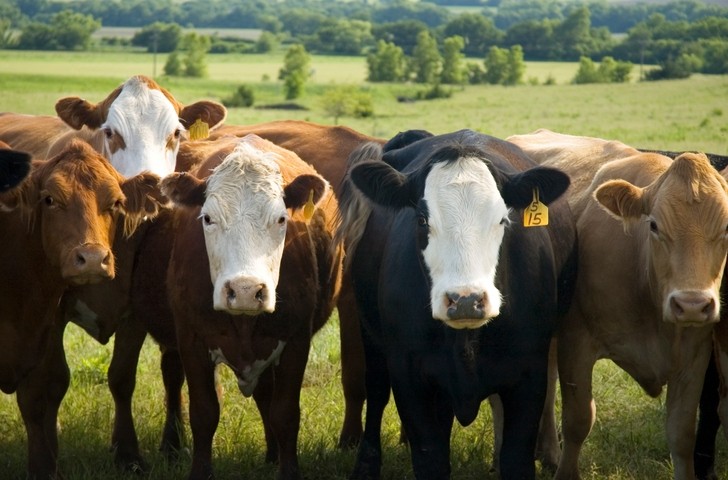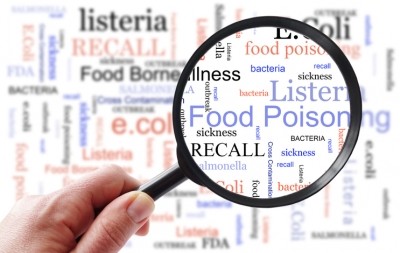US feed maker Burkmann cited over Monensin related cattle deaths

The Kentucky-based company was cited for non-compliance with the Federal Food, Drug, and Cosmetic Act (FD&C Act) by the US Food and Drug Administration (FDA).
The agency inspected the feed manufacturer following the death of multiple cattle reportedly related to use of the company’s product containing 'superpotent' levels of Monensin.
“This inspection was conducted in response to a Reportable Food Registry (RFR) event regarding the death of at least 23 cattle after consuming your product, 2858 - WCN Balancer R1400 TZI, which contained elevated levels of Monensin,” said Steve Barber, director of Division V in the office of Human and Animal Foods Operation-East, in a warning letter.
The initial event was reported to the FDA at the end of May and inspections of the Danville, Kentucky Burkmann Nutrition facility were conducted in June, the agency said. The company was notified of the results at the end of August and the warning letter published in mid-September.
Product related warning
Burkmann was found to have to have made and distributed a medicated animal feed that contained an overly high level of Monensin, said the FDA. Monensin has been approved for use in some medicated cattle feed.
“On May 8, 2017, you manufactured 2858 - WCN Balancer R1400 TZI, lot 205087-3 - containing the animal drug Monensin,” Barber said in the letter. “Results from a sample obtained by FDA for this lot of cattle food found levels of Monensin at 9,070 grams per ton (10,000 mg/kg or ppm), which was 648% of the labeled concentration.”
Monensin is permitted for use in feed intended for growing cattle raised on pasture or in a dry lot and is used to boost the rate of weight gain, the agency said. Differing uses allow for concentrations of 15 to 400 g to be offered at 20 to 200mg per cow, per day.
The feed additive also needed to be mixed with grain or roughage to establish a specific concentration of Monensin being delivered, the agency said.
When the feed product called, WCN Balancer, [generated with the intense form of Monensin] was fed to cattle it led to the deaths of at least 23 cattle, by the time of the inspection, the agency said. The product was found to be unsafe and adulterated according the regulatory act.
"The Type B medicated cattle food 2858 - WCN Balancer R1400 TZI - is labeled to be further mixed at a rate of 4 ounces into a pound or more of grain or roughage to supply a concentration of 175 mg of Monensin/head/day. However, because this lot was superpotent, following the labeled mixing instructions would yield a concentration of ~ 1134 mg of Monensin/head/day."
Additional findings
However, the warning letter did not just cover concerns regarding the Monensin product, the FDA said. The facility inspection found deviations from Current Good Manufacturing Practice (CGMP) regulations specific to non-licensed medicated animal feed manufactures.
“Because of these CGMP deviations, the medicated animal food manufactured, processed, packed, or held at your facility is adulterated,” the agency said. The requirements included that procedures need to be established and used for equipment involved in the generation or distribution of medicated feeds in order to avoid interaction between medicated and non-medicated feeds.
Although the company had written procedure related to mixing concentrate, the inspection found that they were not followed, said the agency. “While you have established procedures to avoid the unsafe contamination of medicated and nonmedicated feeds, the failure to use these procedures is a violation of [the act],” it added.
“This deviation from CGMP regulations for non-licensed medicated animal food manufacturers is a repeat deviation, which your firm has been cited for during inspections that occurred November/December 2014 and August/September 2015,” the agency said. “As a result of the November/December 2014 inspection, FDA sent you an untitled letter dated June 2, 2015.”
The company has made some changes based on previous investigation findings, the agency said.
“We acknowledge that you have taken responsibility for the incident and recalled the identified product, promised to discontinue production of the concentrated formulations, addressed personnel issues, and intend to compensate for the loss of cattle,” the FDA said. “However, we do not find your promised corrections sufficient to ensure that your firm's manufacturing processes and controls conforms to the CGMP requirements.”
The company has not established a new or revised procedure for operation or control steps in manufacturing, the agency said. Burkmann also did not provide information on how to check that steps outlined in the written procedure are taken and no unsafe drug carryover happens between production loads, said the FDA.
Additionally, the FDA reminded Burkmann that the letter may not include a complete list of the violations and the company is responsible for ensuring its compliance with regulations. The agency also said that the company would be subject to CGMPs for medicated and non-medicated animal feed starting in September.
“You should take prompt action to correct all of the violations noted in this letter and establish and implement procedures that will prevent these and other violations in the future,” the agency said. “Failure to implement lasting corrective actions may result in FDA taking regulatory action, such as seizure or injunction, without further notice.”
The company was asked to respond regarding the steps taken to address the specified violations or to provide reasoning and a timeline if the process could not be completed within the set time limit.
Burkmann did not respond to our queries for comment prior to publication.














